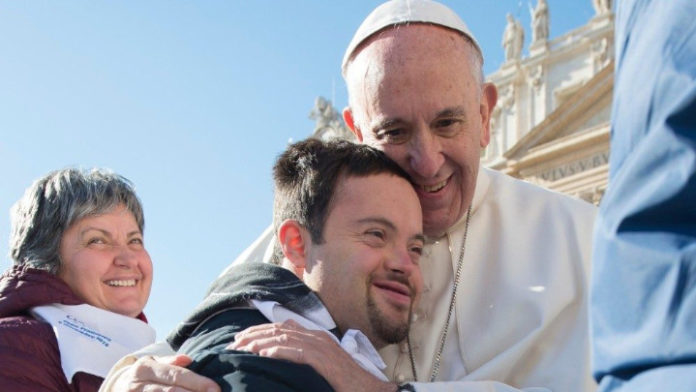(from the Alphonsian Academy Blog)
This year, Pope Francis proposed as the motto for the World Day of Peace: The culture of care as a path to peace. He makes this proposal because his reading of reality in the light of the Gospel makes him emphasise the epochal need to propose the logic of care as a fundamental paradigm of relationship and action. In this message, on the one hand, “God the Creator, the origin of the human vocation to care” and “God the Creator, model of care” are proposed as a foundation, and on the other hand, “Care in the ministry of Jesus”, and as a consequence “the culture of care in the life of the followers of Jesus”. From here, “the principles of the social doctrine of the Church are proposed as the foundation of the culture of care”. Thus, the Pope does not propose – as some seem to suggest – a post-modern paradigm[1], but a paradigm deeply rooted in biblical revelation and largely developed in the Christian tradition.
Thus, according to Francis, from the “grammar of care”, we can draw “a rich patrimony of principles, criteria and indications”, such as: “care as the promotion of the dignity and rights of the person; care for the common good; care through solidarity (with the poor and the defenceless); care and protection of creation”. It also proposes that these indicators should be “a compass for a common direction”, helping “the process of globalisation” to take “a truly human direction”.
Now, what is at the basis of this paradigm of care? First of all, that “caring” implies observing, knowing, listening, assisting, watching over with care, guarding, stimulating, guiding; all actions that enrich this fundamental attitude, as human as it is deeply Christian. On the other hand, it is not a mere action but something more, a “culture”, which implies generating styles and systems of life, of action and meaning, of behaviour, of integral understanding – for it involves ideas and emotions – which express a certain way of realising life and human existence. All this makes up a paradigm, a way of assuming, understanding and transforming reality. A paradigm that aims to encourage, sustain and lead processes that allow a certain way of living life and realising history, insofar as it is culture aiming at the cultivation of values – of humanising quality and quality – and as it is care that makes it possible to take charge of reality, to be in charge of it and bear all that this implies, putting the interest and attention on the fundamental, on everything that allows healing, liberating and transforming reality, personal, structural and systemic.
That is why if we observe the magisterium of Pope Francis, we will see that this theme is always present[2], from the beginning of his shepherding, in his words and concrete gestures, through which he has been indicating to us that it is a matter of cultivating care, with care, with detail, care and arduous commitment. This culture of care implies in his magisterium the attitudes of closeness, joy, beauty, tenderness, reciprocity, gratuitousness, generosity and solidarity.
With the culture of care, the Pope invites us to take on a way of dreaming and walking towards a new world. We must have the humility and courage to review and transform our logics, attitudes and lifestyles, our ways of reflecting and relating to one another. The invitation has been made; we are only waiting for our response in the here and now of our history.
Fr. Antonio Gerardo Fidalgo, C.Ss.R.
Footnotes:
[1] Contrary to what some suppose, this culture of care does not have its major correlate in certain post-modern trends that might sound individualistic and hedonistic, but in the world of medicine, nursing and depth psychology, in general, some 30 years ago. In short, in profound and integral attention to human health, the closest thing, if you will, to integral Christian salvation. In this sense, moral theology should know that it has, as always, a very significant place for dialogue in the field of medical and psychological anthropology.
[2] It would be enough to reread his magisterial texts, so to speak, the major ones, such as Evangelii Gaudium, Laudato Si’, Amoris Laetitia, Fratelli tutti, to see the widespread presence of care, of caring, of taking care of each other. If we would like to point out the particular contribution of each document, we could summarise it as follows: in EG, the emphasis is on caring for the fragility of the weakest, of the people, of families, of the world, etc. (cf. EG, nn. 209-216); in LS, care for creation, for the environment, for nature, the ecosystem and the poor, for life, integral and holistic care (cf. LS, nn. 137-162); in AL, reciprocal care within marriage and the family, care for the joy of love, for fidelity, caring for the most fragile members, pointing out in a particular way a spirituality of care (cf. AL, nn. 39; 47; 126; 321-325); in the TF it insists on care for the world, on care for ourselves and one another, caring fundamentally for the common human dignity and the common good, and as always it does not fail to stress the importance of caring for and supporting the most fragile and weakest; all this following the “Samaritan” model (cf. TF, nn. 17; 57; 64; 78; 78; 115; 117; 174; 188).






